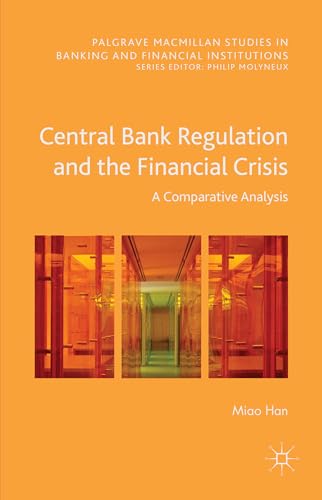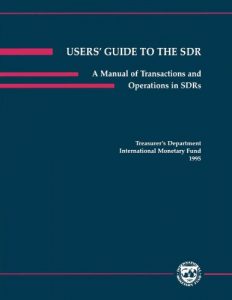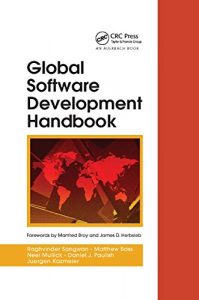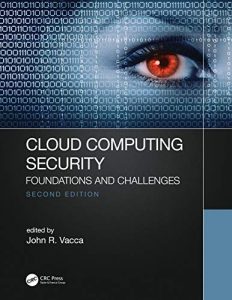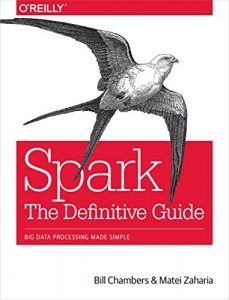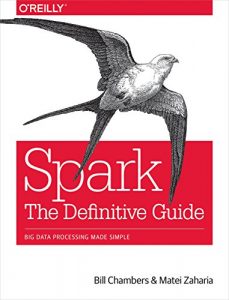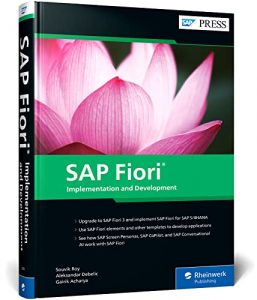Top Financial Books You Must Read for a Better Understanding of Banking and Regulation
In the ever-evolving landscape of finance, having a solid understanding of banking regulations and their implications is crucial. Here is a curated list of must-read books that cover various aspects of financial regulation, challenges in the banking sector, and the effects of recent crises.
1. Central Bank Regulation and the Financial Crisis: A Comparative Analysis
Authored by Miao Han, this insightful book offers a comparative analysis of the impact of central banking regulations during the financial crisis. Han meticulously examines how different regulatory frameworks affected financial stability and recovery. This book is essential for those interested in the dynamics of central bank regulatory policies and their long-term effects on the global economy. With its thorough research and well-structured arguments, it not only enlightens readers but also makes them rethink the robustness of current financial regulations.

2. Financial Regulation and Monetary Arrangements after 1992
This volume, brought together by Michele Fratianni, T.D. Willett, and C.G. Wihlborg, examines the evolution and effectiveness of financial regulations introduced after 1992. It discusses pivotal monetary arrangements that were put in place to safeguard against financial collapse. This book is a must-read for scholars and practitioners who wish to understand the historical context and future implications of financial regulation in managing economies. The depth of analysis provided herein makes it a vital reference work.

3. Banking (Classic Books)
Written by William Amasa Scott, this classic book remains relevant even today. It showcases a comprehensive history of banking and analyses its foundational role in economic development. Scott dives into the origins of banking practices, making it an essential read for anyone interested in the historical evolution of financial systems. Whether you are a student or a seasoned professional, this book lays a firm foundation in understanding banking principles.

4. The Regulation of Financial Planning in Australia
Written by Angelique Nadia Sweetman McInnes, this book addresses the current practices and regulatory issues in financial planning in Australia. It offers empirical analyses that highlight the gaps and potential for regulatory improvement in the industry. This work is particularly informative for financial planners, regulators, and policymakers who are engaged with the nuances of the industry. A deep dive into this book will prepare you to navigate and influence financial regulatory frameworks effectively.

5. Fintech And Green Investment: Transforming Challenges Into Opportunities
In this transformative piece by Cuong Nguyen, Khanh Hoang, and Christopher E C Gan, the authors explore the intersections of fintech and green investment. This book is vital in today’s world, where sustainability and technology converge. It presents solutions for leveraging technology to support green initiatives amidst economic challenges. Readers will gain a fresh perspective on how innovation can pave the way for sustainable futures.

6. FinTech and Data Privacy in Germany
This empirical analysis by Gregor Dorfleitner and Lars Hornuf digs into the critical issues surrounding fintech and data privacy in Germany. In an era where information security is paramount, this book provides policy recommendations and strategies to safeguard personal data. Understanding these challenges is essential for anyone involved in the fintech sector, making this book a pertinent read for stakeholders and regulators alike.

7. International Finance Regulation: The Quest for Financial Stability
Georges Ugeux presents a compelling read on the complexities of international finance regulation. This book elucidates the ongoing quest for stability in global finance and the regulatory frameworks aimed at achieving this goal. Ugeux’s perspectives are invaluable for anyone involved in international finance, academia, or interest in global economic policies, providing enlightening discussions on how regulation can mitigate financial crises.

8. The Critical Handbook of Money Laundering
This handbook by Petrus C. van Duyne, Jackie H. Harvey, and Liliya Y. Gelemerova dissects the myths and realities of money laundering. The authors present rigorous analysis and policy recommendations to combat this pressing issue, making it a crucial read for finance professionals, policymakers, and educators. Understanding the intricacies of money laundering enables better compliance and governance practices.

9. Financial Regulation and Supervision: A post-crisis analysis
In the aftermath of the financial crisis, this book by Eddy Wymeersch, Klaus Hopt, and Guido Ferrarini critically assesses the changes in financial regulation and supervision. A deep understanding of these changes is critical for financial professionals engaged in compliance, governance, and risk management. This book provides an essential backdrop for analyzing recent regulatory developments and their effectiveness.

10. Other People’s Money and How The Bankers Use It
This classic read by Louis D Brandeis delves into the practices of banking and the repercussions of using other people’s money. Brandeis’s critique remains salient in discussions about ethical banking, making this essential for those seeking to understand the importance of responsible banking practices. This historical perspective can enlighten current debates on banking ethics and reform.

These books serve as critical resources for anyone eager to expand their understanding of financial regulation and banking practices. Engage with these texts and solidify your knowledge in a field that shapes our economy now more than ever.

